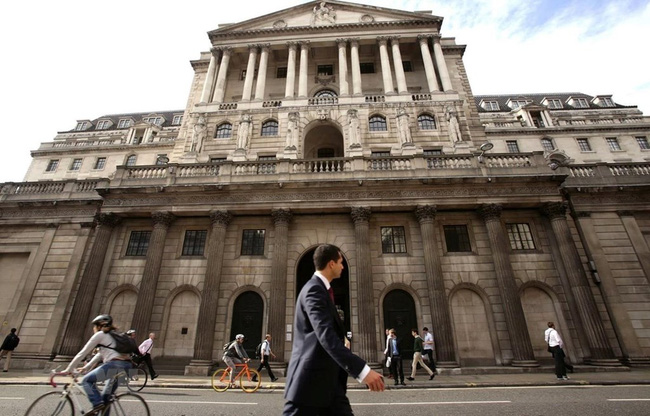Will interest rates rise to pre-GFC levels?
Bank of England Governor Bailey argued that he does not see changes in the global economy that suggest interest rates will return to the levels seen before the global financial crisis (GFC).

BoE becomes first major central bank to raise rates since pandemic.
In the UK, base rates were around 5% before the GFC, while in the US the fed funds target was just over 5%. We doubt that many, if any policymakers or investors disagree with Bailey and there’s certainly no sign in the money markets that anywhere in the developed world is priced for a return to pre-GFC levels. But, having got inflation so wrong, is there a chance that this prescription on rates is wrong as well?
Mr. Steve Barrow, Head of Standard Bank G10 Strategy, has argued for some time that longer-term factors are likely to dictate that rates will rise, not fall. Two particular long-term factors seem to stand out: demographics and deglobalisation. What’s more, the risk that these factors exert upward pressure on rates seems to have increased considerably with the arrival of the pandemic.
On demographics, it is well known that developed nations are at a significant inflexion point whereby the ratio of those above working age to those of working age (the dependency ratio) will rise very quickly.
In simplistic terms, those who have retired do not contribute to supply in the economy and tend to spend rather than save. Both of these factors would seem to add an upside bias to both inflation and interest rates. On the other hand, the working age population contributes both supply in the economy and generates more saving (relative to spending) than the elderly. These factors help lower inflation and interest rates. As the ratio of the elderly to the working age population increases, there could be a tendency for demand to rise relative to supply, thus lifting inflation and potentially interest rates.
Now this argument is significantly more complicated than the one we’ve put here. Former BoE member Vlieghe notes some counter arguments. But whatever you believe there’s little doubt that the pandemic has potentially made the rise in the dependency ratio even sharper given what’s been called the ‘great resignation’ in many developed nations and it mainly revolves around pre-retirement workers who decide to quit early. If you believe that demographics are more likely to prove inflationary and lead to higher rates over the long haul, then the pandemic only seems likely to bolster the argument.
"In our view, the same can be said about deglobalisation, where there seems to be less contention over its inflationary consequences. Even before the pandemic it seemed that globalisation, which had helped to deliver low inflation via things like the expanded pool of cheap foreign labour was under attack from factors such as the Trump presidency in the US and Brexit in the UK. But as far as we can see this deglobalisation pressure has been turbocharged by Covid thanks to issues such as the importance being attached to securing supply chains, and a more general distrust of China over the origins of the pandemic. Of course, these things could change in time but, all the while they don’t, trends such as diverting supply chains or reshoring seem likely to add to inflation, not detract from it", Mr. Steve Barrow said.
The big questions revolve around the following: How much will underlying inflation rise as a result of these sorts of factors once the current inflation surge has run out of road and, in turn, could a rise in underlying inflation, alongside savings trends resulting from demographic factors, cause interest rates to rise to pre-GFC levels? The answers are unknowable, but we do know which side we lean towards, and it is not towards the one that suggests inflation and rates will be stuck at post-GFC lows into the long haul.








